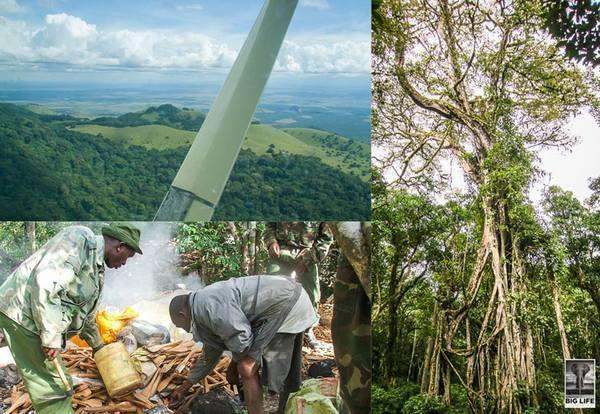
Carbon is the base of all living things, but dangerous to our planet in the wrong form. We’ve all heard about the carbon credit trading idea; but what does it actually achieve? We didn’t know, until such a scheme came to our part of the world.
The basic tenet: the Chyulu Hills and surrounding grasslands comprise a spectacular ecosystem, well worth protecting. There are rare and endangered species, remnant cloud forests shrouded in mist, and geological delights to be found in the volcanic formations. And more, this area is the fragile key linking the Amboseli and Tsavo ecosystems.
The downsides of destruction of this ecosystem are just as important. Apart from the loss of everything mentioned above, vast amounts of carbon are held in the natural vegetation, all of which would be lost to the atmosphere if the habitat were destroyed, contributing further to the unnatural changing of our global climate. Saving this ecosystem has local as well as global benefits.
Realising this, Wildlife Works has spearheaded a carbon credit project, bringing together a number of partners (of which Big Life is proudly one) representing the interests of different communities in the area. If the project is successful, global polluters elsewhere will be able to offset their carbon emissions by buying carbon credits that will keep Chyulu hills carbon out of the atmosphere.
Incoming funding will have huge climate, community and biodiversity benefits. Amongst many others, the income will support better land management, improved local healthcare, education initiatives, reforestation projects, and a larger and better-equipped local ranger force. The project aims to preserve local habitats, and everything within them – there is surely no better investment.
We’re all excited about this project, and hope the world will be too. It’s a chunky piece of text, but if anyone would like more information on the project, or to make a comment during the public comment period (until the end of July), please go to:
http://www.climate-standards.org/2014/06/25/chyulu-hills-redd-project/
